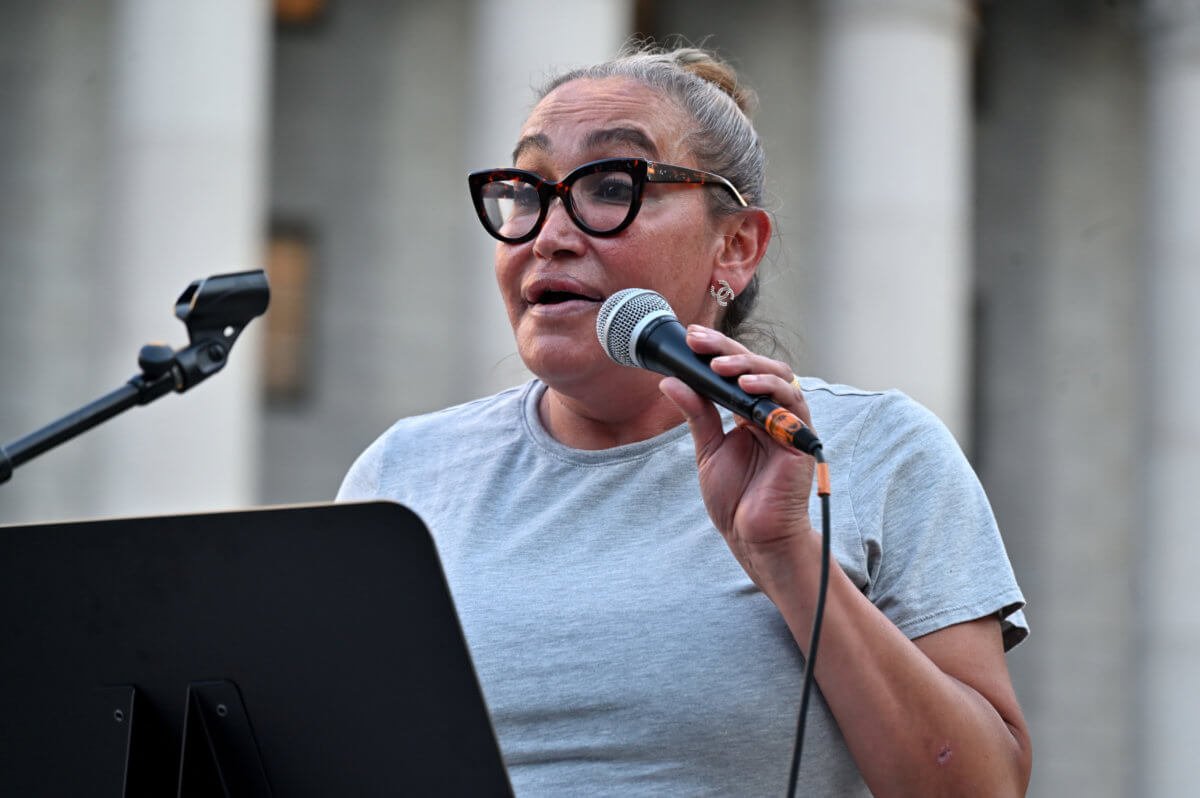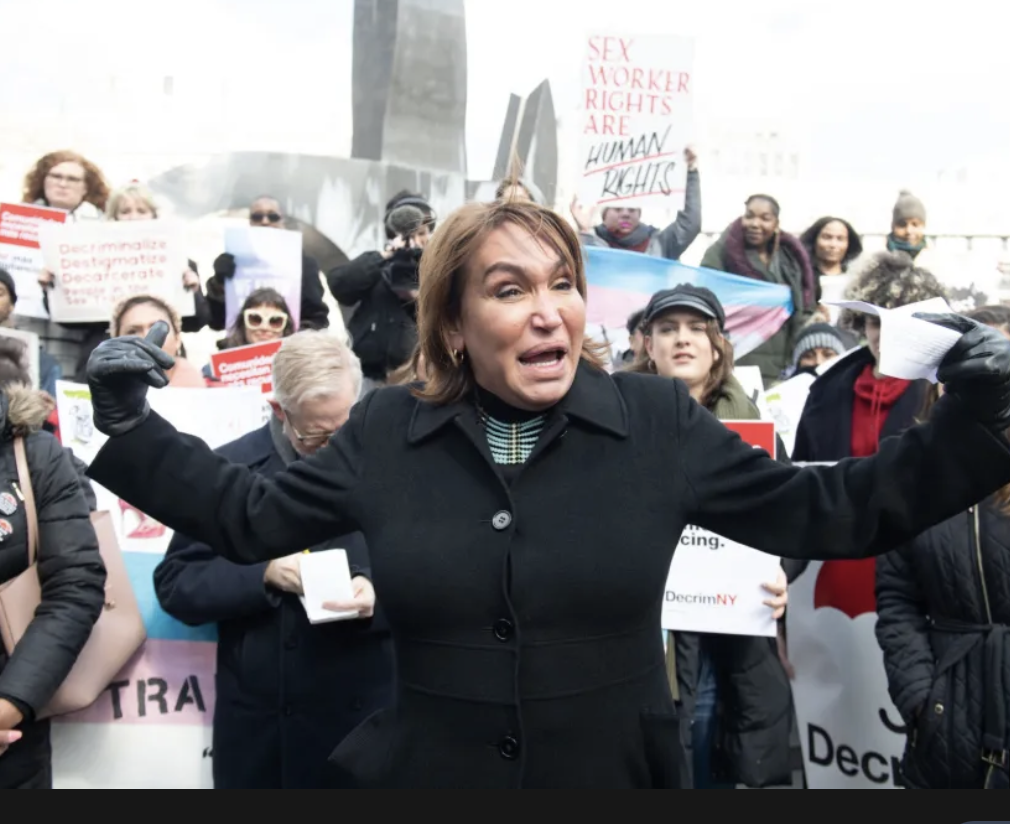Cecilia Gentili: Mother of Intersections
photograph from Cecilia Gentili’s celebration of life at Judson Memorial Church, 2/7/24
The past week has been a bit of a haze for many of us fighting for sex workers’ rights. Our networks have been rocked by the sudden passing of icon Cecilia Gentili. It is not often that a leader in the movement for sex workers’ rights has so much press coverage, but to see how powerful and far-reaching her life, one only needs to look at a few of the news outlets who have covered her passing:
As I read over various types of coverage and thought back to the times I had the pleasure of working with Cecilia, sharing social justice laughs or bitching about legislative frustrations, it struck me what an intersectional legacy of prolific work this woman left us.
Over the years, Cecilia Gentili was a constant figure and trailblazing leader in the sex worker, migrant, and transgender rights movements. Cecilia demonstrated constantly through her life and advocacy that we don’t live single issue lives, and that our struggles for human rights are interconnected. Despite a wildly successful advocacy career, she was a groundbreaking and award-winning writer and actress to boot.
Although she passed away within a week of her 52nd birthday, the sheer amount of accomplishments feel like the life’s work of a handful of centenarians, not the passions of one single woman at half that age.
Cecilia started organizations, initiatives, coalitions, art projects, businesses and much more, the likes of which have profound legacies in their own right. A free clinic for sex workers is named after her at Callen-Lorde. She was a founding member of DecrimNY, a coalition dedicated to destigmatizing and decriminalizing sex work in NY. She also touched more lives than we could possibly fathom, as evidenced by the first commemoration (of several) held for her in NYC.
Within one day of her passing, there were over 1,000 people crowded into Judson Memorial Church in Manhattan. The place was packed with Black and Brown folks, migrants, trans people, and of course, her beloved sex workers. People were crying and comforting each other, spilling into the staircases and even out into the street. Most of us that weren’t on the first floor were watching the live feed of the memorial because there were so many people that we simply couldn’t see. The fact that Cecilia was an atheist (although religiously searching), only added to the beauty of the tributes and love in the church sanctuary. Her legacy was lifted so high, it seemed to me that it felt like her own sacred space. Judson Memorial Church became, for one night, St. Cecilia’s. As a mutual friend put it, “Cecilia was the Patron Saint of Hookers”. I imagine she would have probably loved that label because of her beautifully raunchy sense of humor.
Cecilia understood, lived out, and taught intersectionality with a biting wit and welcoming affect. For example, HIV/AIDS programming that Cecilia had worked on was inclusive of populations typically overlooked in public health responses, such as sex workers and migrants. It is hard to overstate the grace by which she navigated places that largely lacked it.
Like a master of tapestry, she seamlessly wove together education about intersectional struggles, showing us all the compounded issues that migrant workers face, especially trans folks of color, and particularly migrant trans sex workers of color. When we think about “centering the most marginalized”, we could look to how Cecilia lived out radical generosity and fearlessness of conviction.
In her tapestry, I see many colors, threaded and bound together in common struggle, seamlessly interwoven. The truth remains that we cannot have true freedom without liberation from the oppression of discriminatory systems or from our own internalized oppression. I think about her wild joy and it reminds me that our internal oppression might be easier to liberate as we work on the complex systems outside. But we cannot liberate ourselves from oppression without inclusion of all those that are oppressed, and we cannot include all those oppressed without reckoning with our own judgments of who gets to be free.
No less than three other large-scale commemorations are scheduled for her in order to help the community begin to process and grieve. This Movement Mother cultivated a lifetime of resilience that the rest of us could only hope for. May her legacy of intersectional liberation grow stronger through the lives she touched.
Click here to donate to the sex worker clinic named after her, and make sure to notate the donation for “COIN” (Cecilia’s Operational Inclusion Network) or click here to donate to Cecilia’s Legacy Fund.







